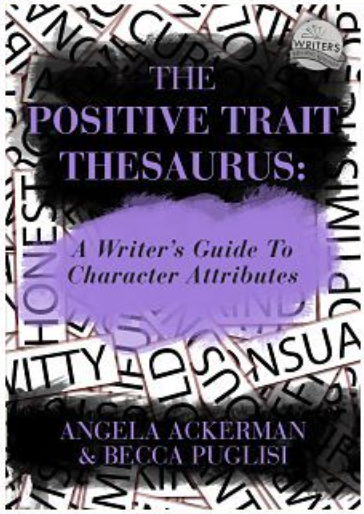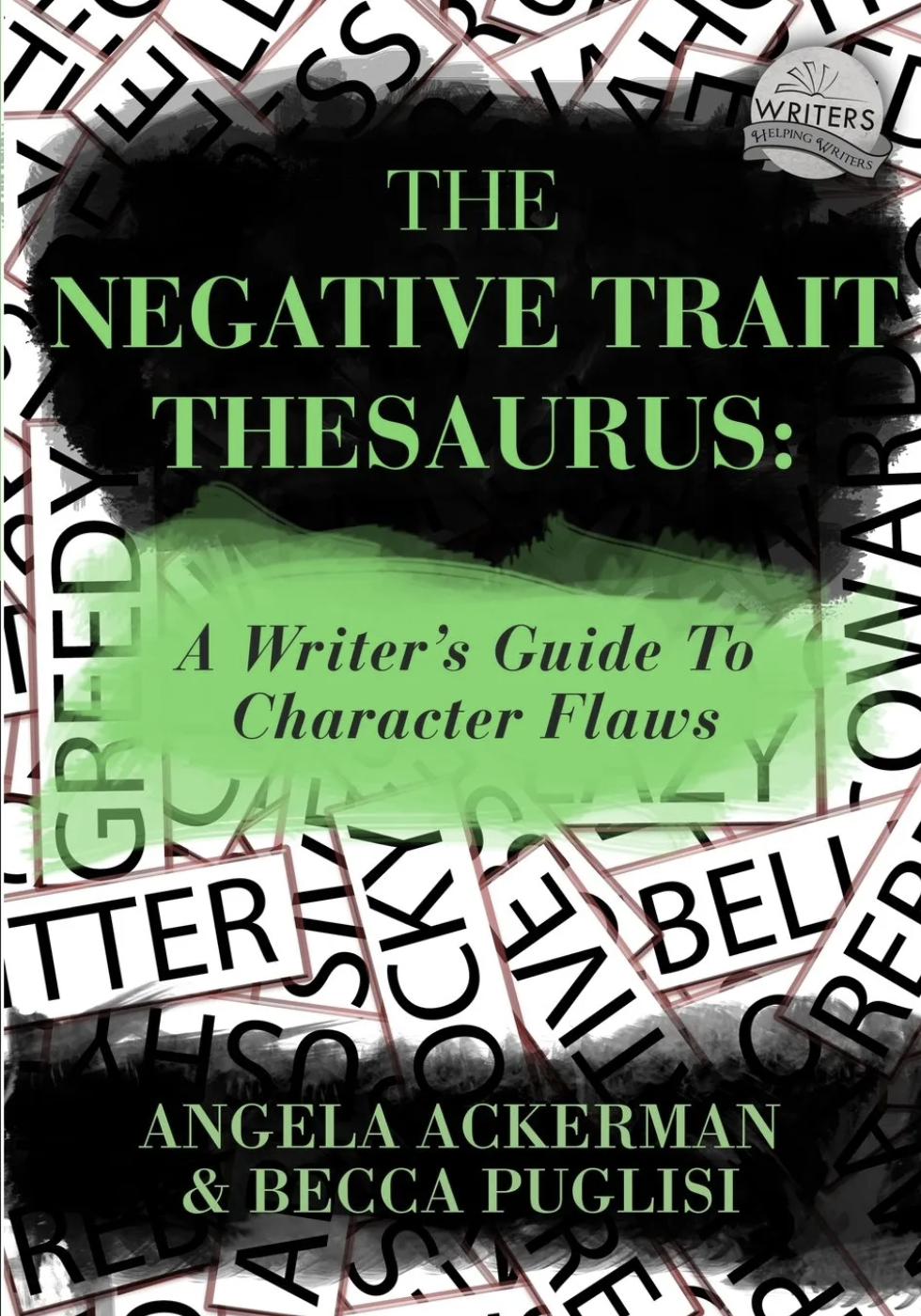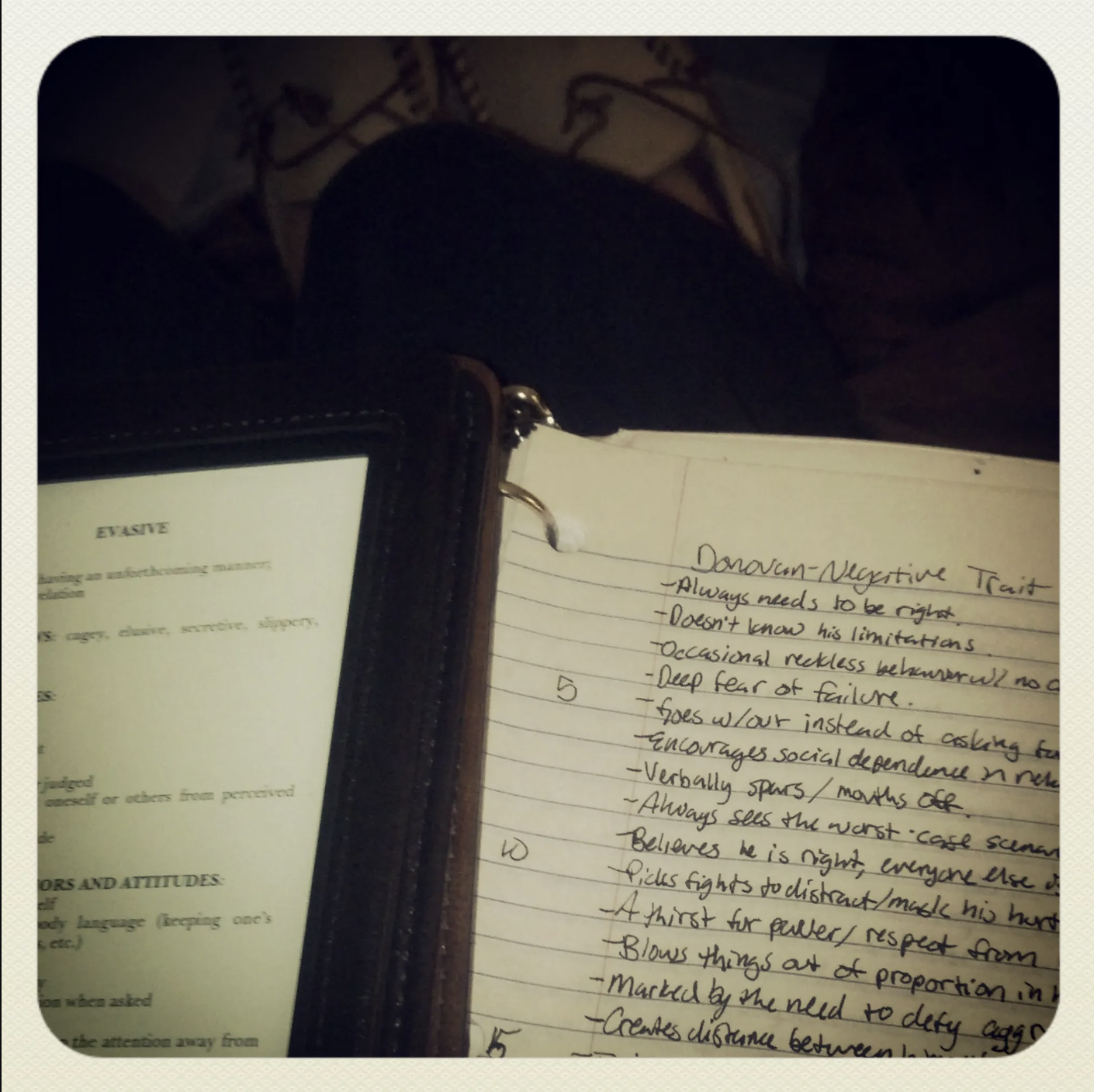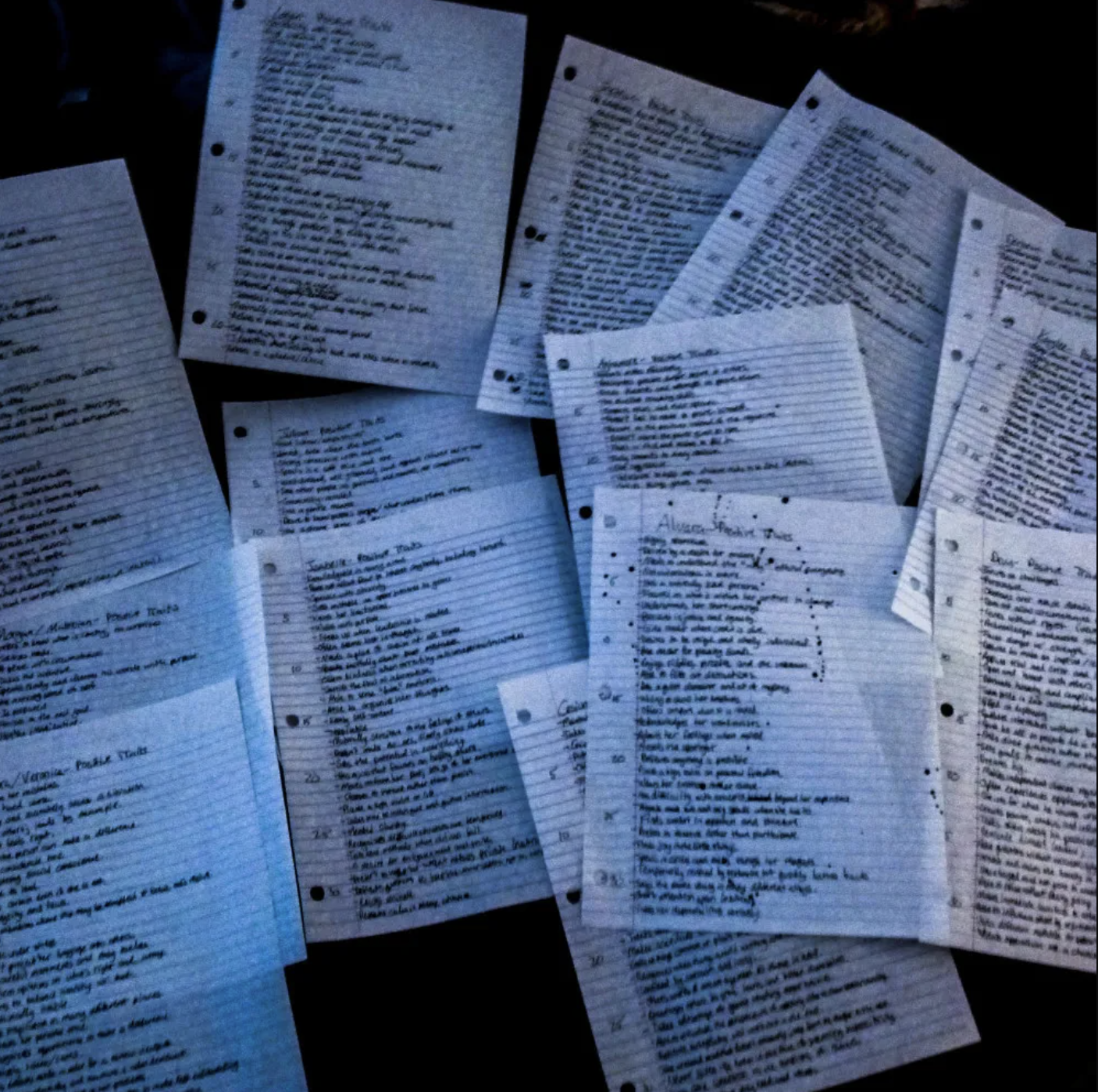On Character Traits
One of the most daunting tasks any new or seasoned writer has to endure is creating a character from nothing.
It heavily consists of us pouring our blood, sweat, and tears into our babies in hopes they turn out to be the best possible characters they can be.
But where do we start?
The past defines the present, as everyone can more than likely agree.
As authors, we have to make sure that when the reader picks up the book and starts on page one, it doesn't feel like that's when the character is being born.
If your character is 23 at the beginning of the book, then there are 23 years of experiences fueling and motivating every choice, decision, thought, action, etc.
So, how does one create these characters?
How do we make unique, creative, individual characters that will draw in readers, make our voices ring out strong against the competition and prove we have a story worth being told?
There are, of course, infinite ways we can find to do that, as there are billions of characters already on the earth, and the imagination is a powerful tool.
During the first few drafts of Immortality Awaits, one of my biggest struggles was an inability to create balanced characters.
They lacked emotion.
They were too immature.
Too boring.
Too bland.
I would have rather stuck a knife in each of their throats just to get them from haunting every thought I had, but alas they persevered and I finally found a way to create them from the inside.
Here's how.
After my return from Massachusetts and my revise, I took a month-long break to focus on my characters, setting, writing style, descriptions, etc.
I was browsing through my Kindle store for some writing advice, and I stumbled across The Positive Trait Thesaurus, The Negative Trait Thesaurus, and The Emotion Thesaurus (also available in paperback if you're not into e-books.)
Inside the first two are lists of various positive and negative traits, and common behaviors/thoughts/actions that are associated with each trait, for a wider variety of ways to think about characters.
For example, instead of saying your character is "creative," you could say, "He/she desires to know people's stories and what makes them who they are."
Or instead of saying your character is "evil," you could say, "He/she contains consistent sadistic and destructive behaviors toward others without remorse."
In the emotion thesaurus, you can then find common body language associated with certain emotions to spruce up nonverbal communication to make the characters more fluid.
Once I read through them, I made a list for each of the fourteen main point-of-view characters in my novel.
I wrote their name at the top on two different pages, fourteen different times, for positive and negative traits.
I then went through each trait in the positive thesaurus and hand-assigned them to each of the fourteen characters, completely immersing myself in their backstories and plot lines, and assigned 669 individual, hand-written traits between the fourteen characters.
Then I went back and did the same for the negatives.
I ended up assigning 623 of those, for a total of 1292 hand-written traits, and about 52 hours of total work within a week.
During this process, it is nearly impossible to deny learning about yourself while you do this, let alone your characters, and it gives you an opportunity to grow alongside your characters because you realize what aspects of your own personality your pour into them.
On top of that, I realized the character connections that they pretty much build on each other became a lot clearer as well.
After I finished all of the traits, I turned to my computer and started typing them, lining them up side-by-side as I had written them on paper. "Positive, but Negative." Some of them lined up on their own, and ended up being well-balanced traits.
For the rest of them...
Do you know when you're in elementary-middle-high school, and you have tests that every so often have the numbers on the left with the words, and the letters on the right with the definitions, and you have to draw lines to them to get the right answer?
Well.
I did that 1292 times in the deepest web of character traits, thoughts, motives, actions, backstory, insane just...Insanity.
After I had lined them all up, I printed them out, stapled each page of the individual character's traits so it read as one long scroll, then taped all fourteen characters together and hung it on my wall.
I had originally intended for it to hang next to my bed, but it ended up covering my entire floor, and I couldn't even hang it up by myself.
By the end of this process, I finally felt like I had conquered the thought processes of my characters.
If you'd like to read a couple of examples, continue reading. If not, that is all of my advice on how to thoroughly examine your characters, while attempting to refrain from bashing your head in the wall the entire time.
Donovan
Determined, but doesn’t know his limitations. A good judge at what other people need, but goes without instead of asking for help. Refuses to give up or give in, but says whatever he needs to get whatever he wants. Sees the natural consequences of his actions and acts accordingly, but repeats the same mistakes without learning from them. Stubbornly continues on despite opposition, difficulty, or danger, but acts in response to his emotions. Speaks and acts with authority and confidence, but has explosive reactions when emotions can no longer be contained.
Kaylee
Has a desire for peace, but doesn’t take “no” for an answer. Makes choices that are safe, but desires to be babied and coddled. Speaks in a neutral tone, but casts doubts on others. Has a studious nature, but answers questions with questions. Has a non-competitive nature, but is weak-willed and easily swayed. Uncomfortable when she’s at odds with someone else, but preaches forgiveness while secretly holding serious grudges.
Logan
Sociable, but values certain people over others. Enthusiastic and positive, but has a numb response to emotional triggers. Treats people fairly, but always takes the opposing viewpoint. Desires to right wrongs and make things better, but sets safe goals and objectives. Tackles problems and situations directly, but looks to blame others when something goes wrong. Diffuses high emotions by remaining calm and reasonable, but uses diversionary tactics to distract attention from himself.
Gabrielle
Highly inquisitive, but speaks without thought and is overly blunt. Seeks out education and training, but disdains social norms/customs/beliefs/traditional roles. Confident, but lacks faith in her capabilities. Asks for help when needed, but is mean or defensive when she’s embarrassed. Believes things happen for a reason and she has to go with the flow, but downplays her skills and importance to avoid responsibilities. Easily overlooks minor offenses (forgive and forget), but displays disappointment at the accuser.






